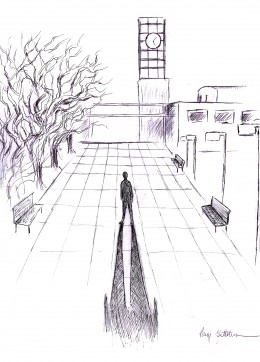
It was hard to miss the news last week: Binghamton University is one of 55 colleges under federal investigation for possible Title IX violations regarding handling sexual violence and harassment complaints.
On Friday, the following response appeared on the BU Facebook page:
“The US Department of Education released a list of 55 colleges and universities being investigated for possible violations of Title IX (which prohibits discrimination on the basis of sex in all federally-funded education programs).
For clarity, inclusion on the list is a reflection of a complaint that has been filed, but is not a suggestion that the campus is violating, or has violated the law.
Binghamton University has been included because of an isolated complaint received by the Department of Education’s Office for Civil Rights [OCR]. We have responded to the complaint and the University is confident that the extensive documentation provided demonstrates that the actions of our campus were in full compliance with both the letter and intent of the law.
Again, there has been no determination of wrong doing by the University at this stage and we have responded to the complaint by providing OCR with extensive documentation that we believe demonstrates the University handled the matter properly.
Due to the nature of the inquiry, we cannot discuss specifics of the case or provide any additional information, however, know that Binghamton University has comprehensive policies in place to ensure that people are not discriminated against at our campus. Be confident that our commitment to a diverse and inclusive community is core to Binghamton University.”
Commenters on the page suggested that the wording of the post made the University appear indifferent to sexual violence on campus. We agree.
In the entire post, the phrase “sexual assault” does not appear once, nor does the word “safety.” The omission of these important words distorts the issue. Instead of actually addressing the issue of sexual assault, the University cloaked it in euphemisms regarding diversity. Instead of showing compassion or concern toward their students, officials are trying to save face. Instead of focusing on the potential reforms of University policy that could be needed, they’re zooming in on issues of legality.
Calling this an “isolated” incident sounds antagonizing toward the affected individual. Why does it matter if only one person is impacted?
This phrasing justifies the incident, writing it off as an outlier rather than the result of a potential flaw in the system. Incidents like these don’t occur within a vacuum. For every one student who has the courage to come forward, there are dozens who remain silent. Given the University’s public treatment of this situation, we can’t blame students who don’t want to bring up sexual assault cases with them. The University’s response implies that a complainant can be treated as a liability, his or her case read with cold legal analysis, rather than as a testimony from a person in need.
Following the letter of the law here is not enough. The University should go the extra mile to ensure that every student feels comfortable and safe.
It’s completely possible that the University has done nothing wrong. Maybe the University took special care to adhere to the proper legal principles. Maybe justice was properly served. Either way, the University’s response was inappropriate. It was completely possible for them to claim that they’ve done everything right while also ensuring students that their safety is paramount.
We aren’t concerned with how self-satisfied the school may be with its impeccable documentation or strict adherence to internally-created policy. If this system has failed even one student, it is time for a new system.


